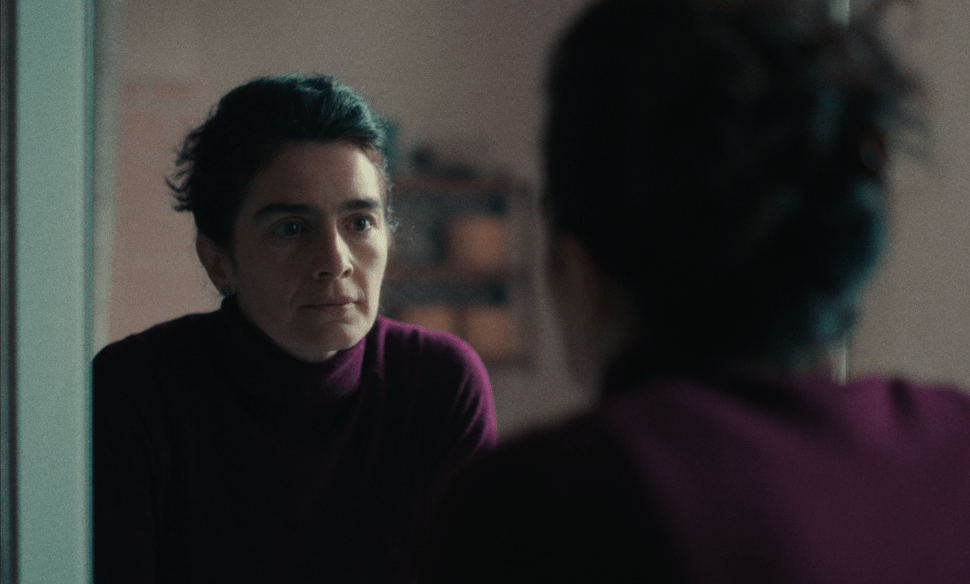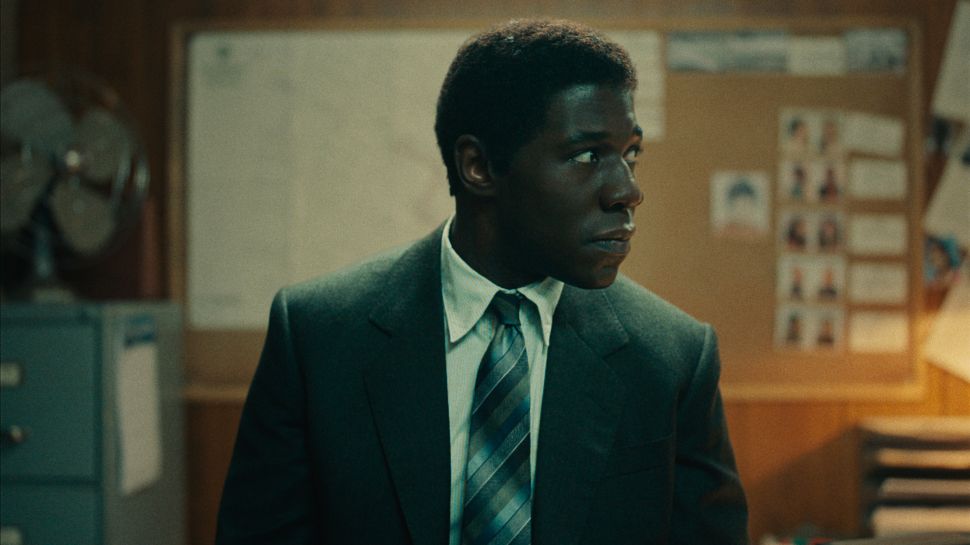
Eric, like the blue, furry monster puppet for which it’s named, is difficult to define. It’s a family drama, a detective story, and a somber rebuke of persisting Reagan-era social and economic policies. It’s also an opportunity for decorated actor Benedict Cumberbatch to simultaneously indulge in two of his passions: showy but serious dramatic acting and silly cartoon voices. The six-part Netflix miniseries from writer/creator Abi Morgan and director Lucy Forbes is both sincere and off-kilter, both grounded and absurd. It is ambitious in its concept and routine in its execution. Like so much straight-to-streaming fare, Eric is a diverting full day of entertainment that you will neither regret nor remember.
Cumberbatch stars as Vincent Anderson, a master puppeteer and the creator of a popular Sesame Street-like children’s program. Though he’s dedicated his life to wholesome kids entertainment, off-camera he is a misanthropic narcissist drunk on his own artistic genius as well as the various bottles of vodka he has stashed around his home and office. Oblivious to his own insensitivity, Vincent goads his wife Cassie (Gaby Hoffman) into nightly screaming matches that terrify their nine-year-old son Edgar (Ivan Morris Howe), who is himself a talented artist. When Edgar goes missing in their Manhattan neighborhood, a guilt-ridden Vincent loses his grip on reality. Believing it will somehow bring his son home, Vincent begins constructing a new puppet based on Edgar’s drawings—a scary but redeemable monster named Eric.

Cumberbatch is well-practiced at playing arrogant pricks who also play at the audience’s sympathies, and Eric offers him a new shade of “poor bastard” to play. He’s an abusive drunk experiencing every parent’s worst nightmare, which in turn sets off an acute mental health condition that, for the most part, only makes him more awful to the people around him. Cumberbatch is also his own foil throughout the series, providing the deep, Brooklyn-accented voice of the Eric puppet and its hallucinatory counterpart. It’s no wonder that this role drew the movie star back to television—not only was it likely a blast for the actor, it’s basically Emmy-bait.
The specificity of Vincent as a character and the occasionally (deliberately) comical scale of his breakdown help to put some distance between the audience and the terrifying ordeal of a child going missing. Though Gaby Hoffman’s performance as a mother in shock and despair over her missing child is played with a much more heart-wrenching straightness, Eric is not an “It could happen to you!” story designed to shock and terrify parents. It’s an ensemble character drama and, to an extent, a political thriller.

Edgar’s disappearance is only one of several mysteries that unravel over the course of the six-episode miniseries, as discovered by Michael Ledroit (McKinley Belcher III), the detective assigned to the case. There’s an element of noir to Eric, as Ledroit finds only corruption and apathy behind every turn, and what begins as a simple whodunnit grows into an examination of systemic inequality. Eric is set during the Reagan ‘80s, and Ledroit is a Black detective in the very corrupt and very racist NYPD. He’s also a gay man, forced to play-act as a content single guy while, back at home, his partner wastes away from AIDS. The press is demanding answers about the missing white kid whose dad is on television, while the case of a poor, presumably queer Black boy grows cold on his desk.
The 1980s period setting provides some cover for addressing issues that still plague American cities today, namely the prioritization of public resources for the privileged and the stoking of contempt towards the poor, marginalized and unhoused. It’s a peak era for public children’s television and public attention towards missing children, but also the AIDS crisis and gentrification. (As in any period mystery, it helps that no one has a cell phone.)
But setting is also a problem for Eric. It’s a New York story that has a sense of vertical scale, spanning from the luxurious apartment of a real estate developer to a makeshift underground encampment, but is nonsensically narrow. Every character in Eric appears to live within a block of each other—they just occasionally hop on the subway to get around the corner. Everyone seems to know everyone, and everyone goes to the same nightclub, which (apart from City Hall) is the center of all the story’s seedy activity. Were Eric a more stylized program, I would presume this to be a deliberate choice, framing the show’s Manhattan as some sort of dark parallel to the one-block-long world of Sesame Street.
Though the text of Eric could afford to be weirder, there’s something to be said for its amorphous tone. The inciting incident is horrifying and heartbreaking, as is Gaby Hoffman’s subplot about a mother who doesn’t know whether or not to grieve her son. Meanwhile, her husband Vincent’s gloomy tale is lightened by the presence of a big furry monster who follows him around talking shit about what a lousy father he is. Rather than totally eating away at the authenticity of the emotions in question, the sprinkle of silliness makes the series a little less punishing and a lot more watchable. One might be more inclined to forgive some of the show’s less believable twists if they’re already acclimated to the presence of a walkaround Muppet.
With Eric, Morgan, Forbes, and company have pulled the admirable trick of setting up a story that may appeal to a privileged class and then diverting their attention towards the concerns of the less privileged. Much of today’s media is laser-focused on systemic inequality, and, as Kurt Vonnegut famously warned, this has accomplished very little, and as such, didactic utility can only account for so much in measuring the value of a work. On most other levels—as a showcase for acting talent, as a page-turning mystery, as a compelling character drama—Eric is occasionally excellent but mostly adequate.

